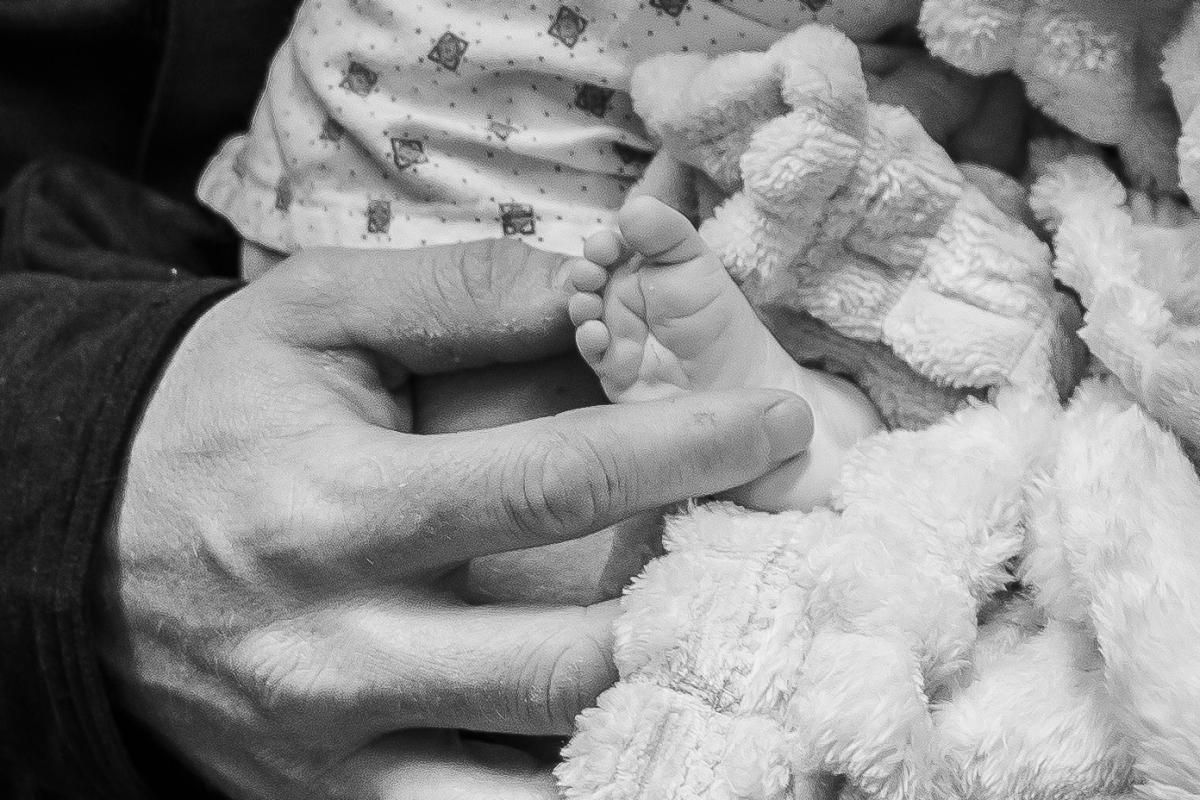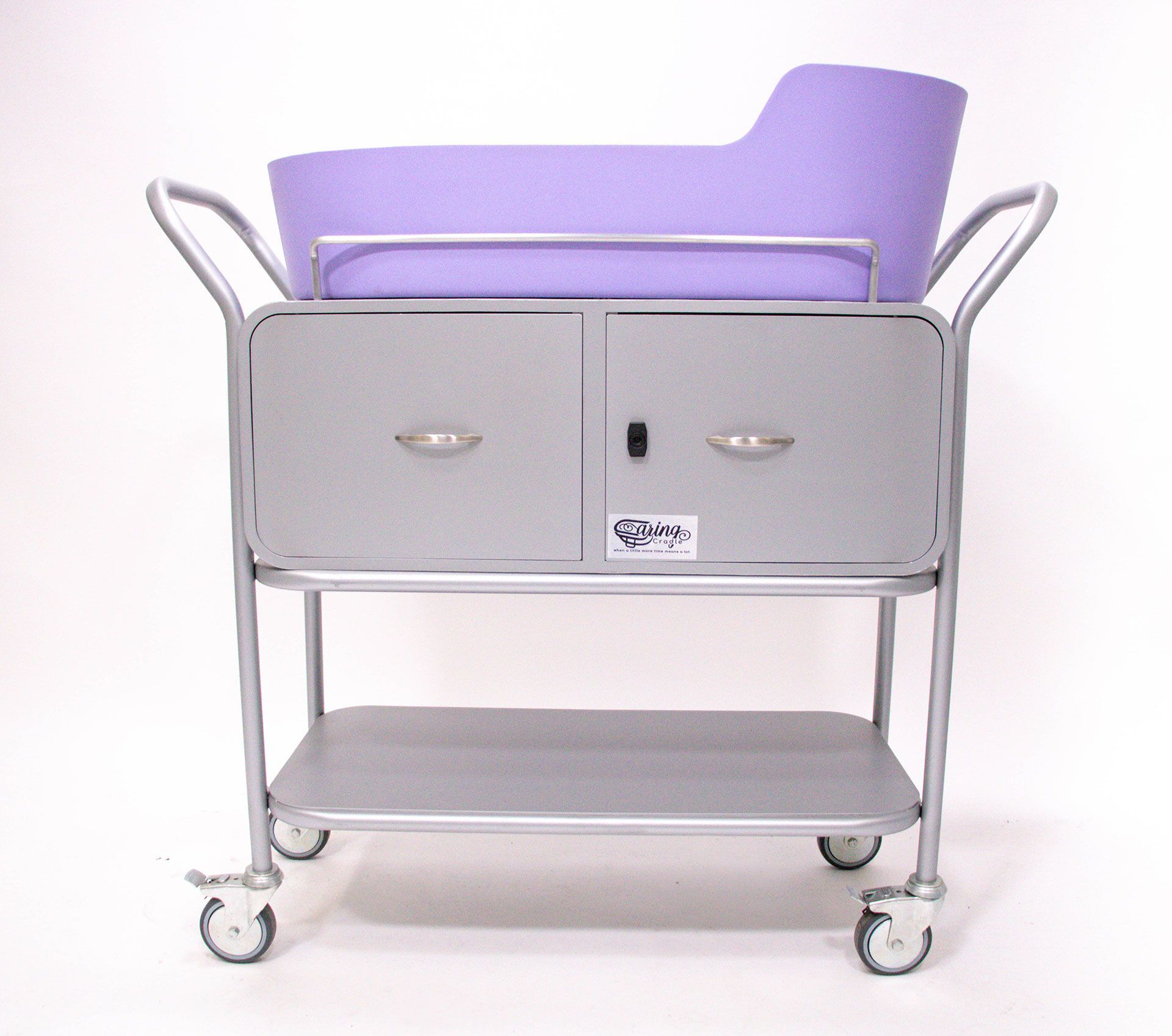Perinatal Bereavement Care
Compassionate Support for Families Experiencing the Loss of a Baby
What Is Perinatal Bereavement Care?
Perinatal bereavement care is the compassionate support provided to families experiencing the loss of a baby during pregnancy, birth, or shortly after. This care acknowledges that the loss of a child at any stage is deserving of time, tenderness, and dignity.

At its heart, perinatal bereavement care is about honoring both the baby and the parents. It offers families the space they need to experience grief and time to say goodbye in their own way.
The Caring Cradle® fills an important void in supporting parents at this very vulnerable moment when the quality perinatal bereavement care is of the utmost importance.
If you are here because you’ve recently experienced a loss, please know you are not alone. There are many hotlines and support groups willing to offer their support.
Please note: This page provides information and resources, but is not a substitute for medical or mental-health care.
Perinatal Bereavement Resources
Structured bereavement resources benefit parents and care professionals alike by combining emotional support with education and access to help. Below are three key areas of perinatal bereavement care along with links and guidance to connect you to the right kind of support.
Training | Support Groups | Hotlines
1. Perinatal Bereavement Training
The Role of a Bereavement Team
A Bereavement Team helps parents through loss. Typical team responsibilities include:
- Offering opportunities for remembrance (photos, footprints, handprints)
- Coordinating with chaplains, funeral homes, or cultural liaisons
- Guiding parents through post-loss logistics and resources
- Providing continued outreach and counseling referrals
Visit AWHONN for additional perinatal bereavement training resources for nurses.
Certifications & Professional Education
Perinatal bereavement care is a growing professional field. Many care providers seek specialized training through:
- Perinatal Loss and Bereavement Certification (various organizations)
- Perinatal Mental Health (PMH-C) Certification
- National Perinatal Association (NPA) and similar continuing education programs
- Hospital-based or regional workshops on trauma-informed bereavement care
Training often emphasizes both clinical knowledge and compassionate communication, helping professionals support families while maintaining their own emotional wellbeing.
2. Perinatal Bereavement Support Groups
Grief after the loss of a child can feel isolating, but support groups remind families that they are not alone.
What Support Groups Offer
Support groups provide a safe and compassionate space where parents can:
- Share stories and emotions with others who understand
- Learn coping tools for grief, anniversaries, and daily life
- Honor and remember their baby through guided rituals
- Receive referrals to therapists or additional resources
Groups are typically led by trained facilitators or peers, and may meet in person or virtually. Attendance is always voluntary, as frequently is active participation. In many support group spaces, some people share openly while others simply listen.
Where to Find Support Groups
Common sources include:
- Hospital bereavement programs
- Local nonprofits and loss foundations
- Faith-based ministries or chaplaincy groups
- National organizations such as Share Pregnancy & Infant Loss Support, MISS Foundation, and The Compassionate Friends
- Virtual groups through national bereavement networks or social media
What to Expect
Most perinatal bereavement support groups include:
- Confidential, respectful discussions
- Gentle facilitation from grief professionals
- Optional rituals or remembrance activities
- Flexible participation — speak, write, or simply be present

3. Perinatal Bereavement Hotlines & Crisis Lines
When grief feels overwhelming, hotlines and text lines can provide immediate support. They are available 24/7 to listen, guide, and connect you to professional resources.
If you are outside the U.S., please visit findahelpline.com for international services.
Helpful Hotlines & Text Lines
| Contact Info | Helpline Name |
|---|---|
| Call or text 988 (U.S.) | 988 Suicide & Crisis Lifeline |
| Text HELLO to 741741 (U.S.) | Crisis Text Line |
| 1-833-TLC-MAMA (852-6262) | Perinatal Mental Health Line |
| 1-800-944-4773 | Postpartum Support International HelpLine |
| 1-800-821-6819 | Share Pregnancy & Infant Loss Support |
| 1-800-221-7437 | First Candle Bereavement Support |
Help us improve this resource by keeping this list of hotlines up-to-date. Reach out to us on our contact page to let us know if we should add or remove a hotline from the resource table.

How Hotlines Do Help
Hotlines offer:
- Compassionate, anonymous listening
- Emotional grounding in moments of crisis
- Referrals to local grief support or counseling
- Guidance for partners, siblings, and extended family
You Are Not Alone
Grief after perinatal loss can feel isolating, but many families have walked this path and found support, understanding, and healing along the way.
There are trained professionals, peer groups, and compassionate communities dedicated to helping parents navigate this experience at their own pace. You do not have to go through this alone. You deserve space, care, and time to heal, and there are people ready to listen and walk beside you whenever you are ready.
How Caring Cradle® Supports Bereavement Programs
When a family experiences the loss of a baby, hospitals and care teams strive to provide comfort, dignity, and time. The Caring Cradle® helps make that possible.

By offering a gentle, reliable way to extend the time parents can spend with their baby, the Caring Cradle® allows staff to focus on compassionate, human care. For hospitals, hospices, and bereavement teams, integrating a Caring Cradle® can:
- Enhance the quality of bereavement care by giving families uninterrupted time to say goodbye in a private, peaceful setting.
- Support staff confidence when navigating one of the most delicate and emotional moments in care.
- Ease emotional strain on caregivers, knowing they can offer a meaningful option that honors both the baby and the family.
- Reflect compassion and leadership in providing truly family-centered care.
The Caring Cradle® exists to give time, dignity, and peace to those moments that matter most, because every family deserves the chance to say goodbye their way.

